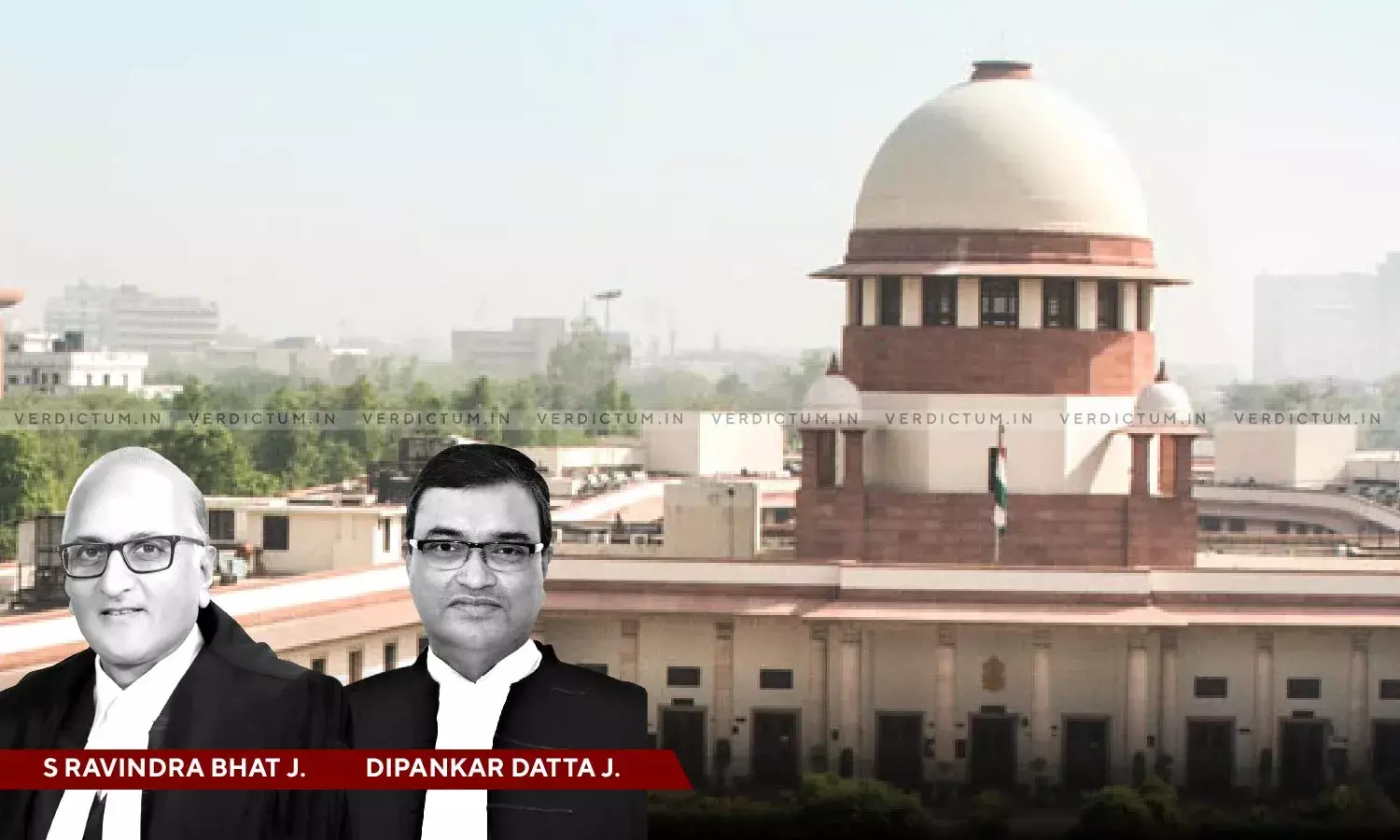Complainants Have No Right Of Audience Before Court Unless Situation For Compounding Of Offence U/s. 420 IPC Arises: SC

The Supreme Court while deciding a case has held that the complainants have no right of audience before it or even the High Court unless a situation for compounding of the offence under Section 420 of the Indian Penal Code arises.
The two-Judge Bench of Justice S. Ravindra Bhat and Justice Dipankar Datta said, “We hold that at this stage, the complainants have no right of audience before this Court or even the High Court having regard to the nature of offence alleged to have been committed by the appellant unless, of course, a situation for compounding of the offence under Section 420, IPC, with the permission of the Court, arises. … The appeal stands disposed of on terms as aforesaid. The application for intervention stands dismissed.”
The Bench also said that the tests for the grant of anticipatory bail are well delineated and stand recognized by the passage of time.
Advocate E.R. Sumathy appeared on behalf of the appellant while Advocates Shreekant Neelappa Terdal and Sudhir Mendiratta appeared on behalf of the State.
Brief Facts -
The appellant was an owner of an immovable property and with an intention to re-develop the same, he entered into three agreements with a builder. As per the terms of the agreement, the builder was required to construct a multi-storied building in which the appellant would have ownership rights in respect of the 3rd floor and the upper floor, apart from Rs. 55,00,000/-. The builder entered into an agreement to sell and purchase and the complainants had allegedly paid Rs. 11,00,000/- to him.
On the instructions of the builder, the complainants on different dates allegedly made payments of additional amounts to the appellant as well as the builder, in cash as well as by cheques, totalling Rs. 35,00,000/-. However, the complainants failed to comply with the terms and conditions of the agreement dated December 14, 2018, triggering the institution of a civil suit by the builder against them seeking cancellation of such agreement and forfeiture of the amount of Rs. 13,00,000/-.
The Apex Court in view of the facts and circumstances of the case noted, “A disquieting trend emerging over the years which has gained pace in recent times necessitates this opinion. It has been found by us in multiple cases in the past several months that upon First Information Reports being lodged inter alia under section 420 of the Indian Penal Code, 1860 (“the IPC”, hereafter), judicial proceedings initiated by persons, accused of cheating, to obtain orders under Section 438 of the Code of Criminal Procedure, 1973 (“the Cr. PC”, hereafter) are unwittingly being transformed into processes for recovery of the quantum of money allegedly cheated and the courts driven to impose conditions for deposit/payment as pre-requisite for grant of pre-arrest bail.”
The Court considered it appropriate to remind the High Courts and the Sessions Courts not to be unduly swayed by submissions advanced by counsel on behalf of the accused in the nature of undertakings to keep in deposit/repay any amount while seeking bail under Section 438 of the Cr.PC. and incorporating a condition in that behalf for deposit/payment as a pre-requisite for grant of bail.
“The High Court would have been well-advised to examine whether the appellant was to be denied anticipatory bail on his failure to satisfy any of such tests. It does seem that the submission made by counsel on behalf of the appellant before the High Court had its own effect, although it was far from being a relevant consideration for the purpose of grant of bail”, said the Court.
The Court further observed that if at all the offence alleged against the appellant is proved resulting in his conviction, he would be bound to suffer penal consequence(s) but despite such conviction, he may not be under any obligation to repay the amount allegedly received from the complainants and this too is an aspect which the High Court exercising jurisdiction under Section 438 of the Cr.PC. did not bear in mind.
“Under the circumstances, we hold that the High Court fell in grave error in proceeding on the basis of the undertaking of the appellant and imposing payment of Rs.22,00,000/- (Rupees twenty-two lakh) as a condition precedent for grant of bail. … Till such time further orders are passed by the High Court, the appellant’s liberty shall not be infringed by the investigating officer. In the meanwhile, however, the appellant shall be bound to cooperate with the investigating officer, as and when he is called upon to do so”, it held.
Accordingly, the Court dismissed the application for intervention and remitted the matter to the High Court for re-consideration of the pre-arrest bail application.
Cause Title- Ramesh Kumar v. The State of NCT of Delhi


